
Charles Carroll, known as Charles Carroll of Carrollton or Charles Carroll III, was an American politician, planter, and signatory of the Declaration of Independence. He was the only Catholic signatory of the Declaration and the longest surviving, dying 56 years after its signing.

Louis McLane was an American lawyer and politician from Wilmington, in New Castle County, Delaware, and Baltimore, Maryland. He was a veteran of the War of 1812, a member of the Federalist Party and later the Democratic Party. He served as the U.S. representative from Delaware, U.S. senator from Delaware, the tenth U.S. Secretary of the Treasury, the twelfth U.S. Secretary of State, ambassador to Great Britain, and president of the Baltimore and Ohio Railroad.

James Dudley was an American baseball player, professional wrestling manager, and professional wrestling executive. He played Negro league baseball for nine years but is best known for his time with the World Wide Wrestling Federation. Dudley was the first African-American to run a major United States arena. He worked with four generations of wrestling's McMahon family and was particularly close with Vincent J. McMahon. At age 74, he was put back on the company's payroll to show appreciation for his work for the McMahons. He also managed several wrestlers in the WWWF and was inducted into the WWF Hall of Fame class of 1994.
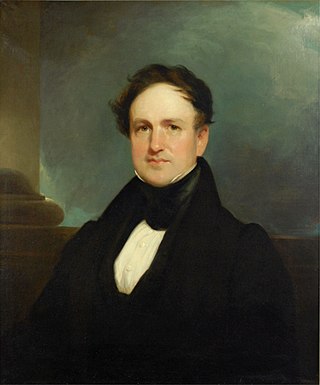
Benjamin Chew Howard was a Maryland politician and lawyer. After serving on the city council of Baltimore in 1820 and in both houses of the Maryland legislature, he was a Representative in the United States Congress from 1829 to 1833, and from 1835 to 1839. He was thereafter the fifth reporter of decisions of the United States Supreme Court, serving from 1843 to 1860.

Edwin Warfield was an American politician and a member of the United States Democratic Party, and the 45th Governor of Maryland in the United States from 1904 to 1908. From 1902 to 1903, he served as president general of the National Society of the Sons of the American Revolution.

Thomas Swann was an American lawyer and politician who also was President of the Baltimore and Ohio Railroad as it completed track to Wheeling and gained access to the Ohio River Valley. Initially a Know-Nothing, and later a Democrat, Swann served as the 19th Mayor of Baltimore (1856–1860), later as the 33rd Governor of Maryland (1866–1869), and subsequently as U.S. Representative ("Congressman") from Maryland's 3rd congressional district and then 4th congressional district (1869–1879), representing the Baltimore area.
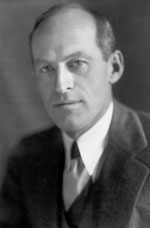
Millard Evelyn Tydings was an American attorney, author, soldier, state legislator, and served as a Democratic Representative and Senator in the United States Congress from Maryland, serving in the House from 1923 to 1927 and in the Senate from 1927 to 1951.

Henry Winter Davis was a United States Representative from the 4th and 3rd congressional districts of Maryland, well known as one of the Radical Republicans during the Civil War. He was the driving force behind the abolition of slavery in Maryland in 1864, and it was largely because of him that Maryland did not secede.

John A. McMahon was a three-term United States Representative from Ohio from 1875 to 1881. He was the nephew of Clement Vallandigham, another Representative from Ohio.
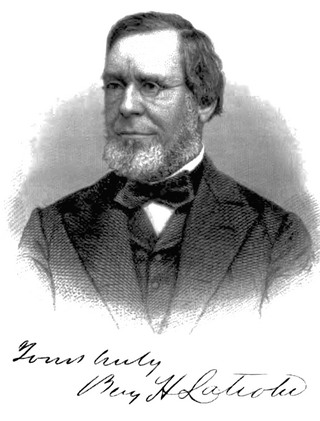
Benjamin Henry Latrobe II was an American civil engineer best known for his railway bridges and a railway executive.
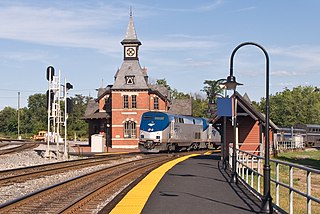
Ephraim Francis Baldwin was an American architect, best known for his work for the Baltimore and Ohio Railroad and for the Roman Catholic Church.

Robert Milligan McLane was the 34th Mayor of Baltimore, serving from May 19, 1903, to his death on May 30, 1904. He is known for his role in the Great Baltimore Fire, and for his sudden death in office.
The 1902 Baltimore Orioles season finished with the Orioles in 8th place in the American League (AL) with a record of 50–88. The team was managed by John McGraw and Wilbert Robinson. The team played at Oriole Park in Baltimore, Maryland.
John Van Lear Findlay was a U.S. Representative from Maryland.
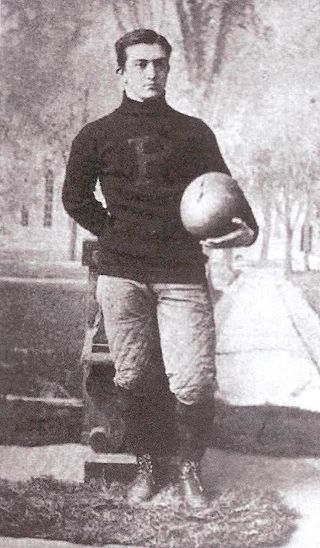
Edgar Allan Poe was Attorney General of the State of Maryland from 1911 to 1915. He was born in Baltimore, the son of former Maryland Attorney General John Prentiss Poe. He was named for his great uncle and second cousin, twice removed, the celebrated author Edgar Allan Poe, who died in 1849.
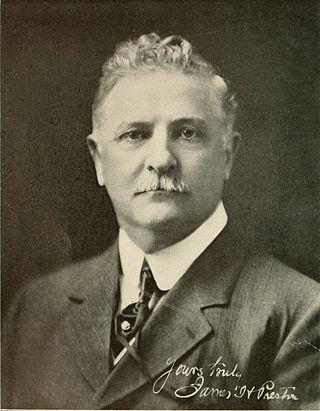
James Harry Preston was the Mayor of Baltimore from 1911 to 1919. He also served in the Maryland House of Delegates. From 1920 to 1921, he served as president general of the National Society of the Sons of the American Revolution.

William Van-Lear Black was an American publisher and civil aviation pioneer.
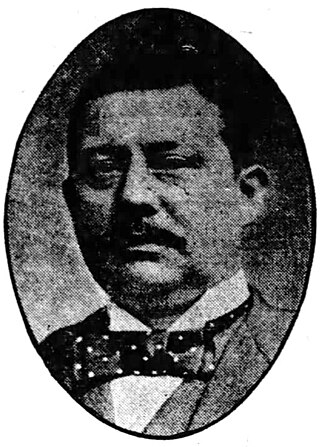
John J. "Sonny" Mahon was an American politician and professional baseball executive. He served as president and principal owner of the Baltimore Orioles of the American League in 1902. He was also a notable political boss in Baltimore, affiliated with the Democratic Party.

Christopher Hughes was an American attorney and diplomat who served as Chargé d'affaires in Sweden and The Netherlands in the 1820s and 1830s. He was the son in law of United States Senator Samuel Smith.

Joseph Sprigg was an American lawyer and politician in the U.S. state of West Virginia. Sprigg served as the sixth Attorney General of West Virginia from January 1, 1871, until December 31, 1872, and was the first Democrat to serve in the post. Sprigg was an organizer of the Democratic Party of West Virginia and the West Virginia Bar Association, of which he served as its inaugural president.

















